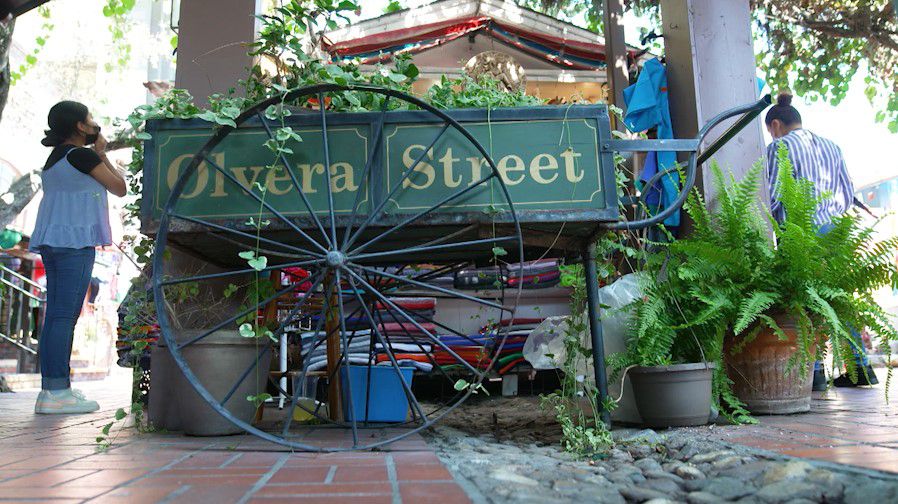LOS ANGELES — The Los Angeles City Council on Friday advanced an effort to save a long-time beloved Olvera Street attraction known as “El Burro,” a life-sized stuffed donkey, after its owners ran into issues with the leasing contract.
In a 13-0 vote, council members backed a motion introduced by Councilman Kevin de León to request the Board of El Pueblo de Los Angeles Historical Monument Authority Commissioners to immediately consider the leasing agreement with puesto P-04, operated by La Carreta at Placita Olvera. The goal is to add the owners, Richard Hernandez Chase and Patricia Josefina Hernandez, onto the lease.
Council members Bob Blumenfield and Hugo Soto-Martinez were absent during the vote.
“This issue touches on the heart of what makes our city vibrant, diverse, and our legacy families who have served our communities for generations,” de León said prior to the vote.
He added, “It is important to note that the council does not have jurisdiction to order the commission to review it, but the right thing to do would be to review the case especially relative to the city’s commitment to upholding the historic integrity of the historic location and the administrative process. El Pueblo is more than just a tourist destination. It is the beating heart of our city’s history and culture.”
There was no immediate response to a request for comment from the El Pueblo commission.
La Carreta was founded in the late 1960s by Jesus “Don Chuy” Hernandez and his wife Maria Trancito Hernandez. Visitors to La Carreta at the time could get photos with the family’s pet donkey, Cirila. The burro was later replaced by a “Jorge,” a life-sized stuffed burro.
The stuffed burro is known by many residents of the city and has attracted visitors to El Pueblo for photos.
In 2019, Maria Hernandez submitted paperwork to the city requesting to have her children, Patricia and Richard Hernandez, added to the lease contract. Richard Hernandez told LA Taco in May that after his mother died, they got the unexpected news that they were to be evicted due to a contract issue.
“The pueblo claims there’s a clerical error with our business contract; however, my family owns another business here and we drafted paperwork for both back in 2019 to change ownership and add our other family members,” Eugenia Nicole Macias, a member of the Hernandez family, told LA Taco.
There were problems with updating La Carreta’s contract, and it never happened. Members of the Hernandez family have shown up to El Pueblo’s board meetings, but nothing has come out of those discussions.
Richard Hernandez told City News Service he was grateful to de León’s office and the City Council for approving the motion. He said the whole situation has been difficult.
“I reached out to everybody. I reached out to the commission. I reached out to the office. I reached out to the City Attorney. They all gave me the same answer: They couldn’t help me,” he said.
But when he reached out to de León’s office it was: “I want to help you,” Hernandez said.
He said he hopes the motion will lead to open negotiations with the Hernandez family to begin a new lease or add Richard to the original contract.
Richard Hernandez explained that a lot of businesses at El Pueblo have suffered and fallen back on rent due to extreme heat, COVID-19, homelessness affecting business, and overall reduction in foot traffic. Things have improved slowly, and Hernandez said he remains hopeful that he and his family will continue to operate their donkey cart, which has become an iconic stand.
“Generations have been through here, families, visitors and tourists from all over the world have come to Olvera Street and taken their souvenir photo,” Richard Hernandez said. “It’s like the Hollywood Sign, like Mickey Mouse in Anaheim. It’s just something that’s always been there and they can count on it.”
He added, “They can take a really nice, cool part of Mexico in the Heart of LA. That’s our logo. It’s part of the fabric of LA.”
El Pueblo, commonly referred to as Olvera Street, was founded in 1781. The complex is made up of 27 historic buildings, seven museums and home to about 75 merchants, who sell various traditional and cultural wares.



